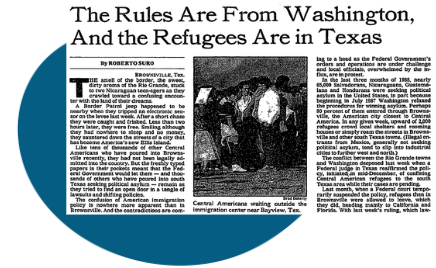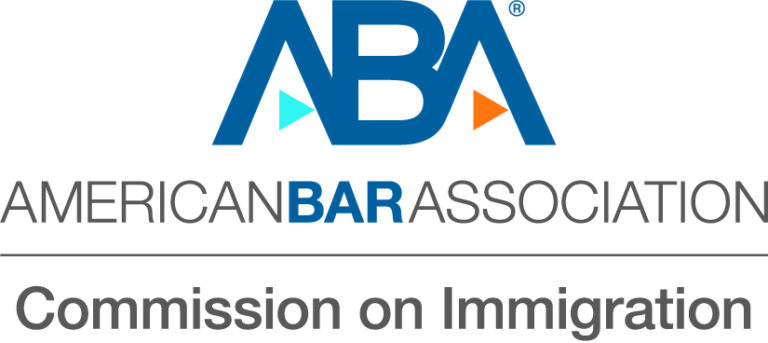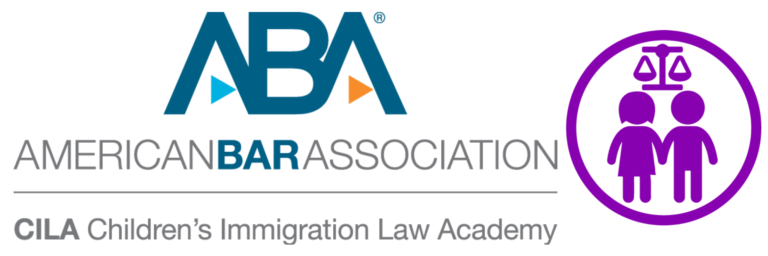Who We Are
For more than 35 years, ProBAR has been a leading provider of critical legal services for people at risk of deportation in the Rio Grande Valley of Texas and as of 2023 – Houston!
Our Mission
The South Texas Pro Bono Asylum Representation Project (ProBAR) empowers immigrants and asylum-seekers through high-quality legal information, representation, and connections to services. ProBAR serves immigrants and asylum-seekers in the Rio Grande Valley border region and Houston, Texas.
Our Harlingen-based team provides legal services for adults and unaccompanied children in federal custody in our region, as well as support to non-detained individuals facing removal proceedings before the Harlingen Immigration Court. Our office in Houston provides representation to people facing removal proceedings in the Houston metro area following their release from federal custody in the Rio Grande Valley.
Our Values & Beliefs
Values
Values
Respect & Fairness: We respect the humanity and dignity of all people through fairness in our words, actions, and processes.
Compassion & Kindness: We treat everyone with compassion and kindness.
Diversity & Inclusion: We respect, value, and uplift each person’s individuality, background, and lived experience in our work.
Integrity: We are honest, transparent, and personally accountable in our work, and we honor the trust placed in us by our clients, colleagues, and stakeholders.
Collaboration & Teamwork: We work together and support each other to pursue our shared mission, vision, and goals.
Effectiveness & Professionalism: We conduct our work with the highest standards of excellence to promote effective, client-centered outcomes.
Learning & Growth: We are committed to ongoing professional education and growth.
Resilience & Adaptability: We find a way forward in the face of adversity as we zealously defend the rights of our clients.
Beliefs
Beliefs
Regarding Our Society
- Diversity is a strength for all nations, communities, and organizations.
- Every person deserves to be respected and to live and work in a safe environment.
- Every person – regardless of background – should be treated fairly under the law.
- Our laws should eradicate inequality and systems of oppression.
- We should assume the people we meet and work with will act in good faith.
Regarding Our Clients
- Our clients' resilience and innovation strengthen our communities.
- Our clients, like us, seek safety, health, education, opportunity, and prosperity.
- Our clients - regardless of age - have the right to express their goals and desires in their representation and the services they receive.
Regarding Our Work
- Our collective work aims to reform the immigration system to ensure fair and humane treatment and to expand opportunities for immigrants and asylum seekers.
- ProBAR’s success depends on the work of our entire staff, as well as the partnership of funders, volunteers, and other stakeholders.
- Effective services require intentional efforts to build trust and to employ trauma-informed approaches that recognize individual experiences as well as systematic oppression.
- Proactive self-care is critical to effective service delivery.
Regarding Our Society
Regarding Our Clients
Regarding Our Work
• Diversity is a strength for all nations, communities, and organizations.
• Every person deserves to be respected and to live and work in a safe environment.
• Every person – regardless of background – should be treated fairly under the law.
• Our laws should eradicate inequality and systems of oppression.
• We should assume the people we meet and work with will act in good faith.
• Our clients’ resilience and innovation strengthen our communities.
• Our clients, like us, seek safety, health, education, family, and prosperity.
• All people at every age have the right to express their goals and desires.
• The immigration system must be reformed to ensure fair and humane treatment and to expand opportunities for immigrants and asylum seekers.
• ProBAR’s success depends on the work of our entire staff, as well as the partnership of funders, volunteers, and other stakeholders.
• Proactive self-care is critical to effective service delivery.
• Effective services require intentional efforts to build trust and to employ trauma-informed approaches that recognize individual experiences as well as systematic oppression.
Regarding Our Society
Regarding Our Clients
Regarding Our Work
- Diversity is a strength for all nations, communities, and organizations.
- Every person deserves to be respected and to live and work in a safe environment.
- Every person – regardless of background – should be treated fairly under the law.
- Our laws should eradicate inequality and systems of oppression.
- We should assume the people we meet and work with will act in good faith.
- Our clients' resilience and innovation strengthen our communities.
- Our clients, like us, seek safety, health, education, family, and prosperity.
- All people at every age have the right to express their goals and desires.
- The immigration system must be reformed to ensure fair and humane treatment and to expand opportunities for immigrants and asylum seekers.
- ProBAR’s success depends on the work of our entire staff, as well as the partnership of funders, volunteers, and other stakeholders.
- Proactive self-care is critical to effective service delivery.
- Effective services require intentional efforts to build trust and to employ trauma-informed approaches that recognize individual experiences as well as systematic oppression.
Regarding Our Society
Regarding Our Clients
Regarding Our Work
• Diversity is a strength for all nations, communities, and organizations.
• Every person deserves to be respected and to live and work in a safe environment.
• Every person – regardless of background – should be treated fairly under the law.
• Our laws should eradicate inequality and systems of oppression.
• We should assume the people we meet and work with will act in good faith.
• Our clients’ resilience and innovation strengthen our communities.
• Our clients, like us, seek safety, health, education, family, and prosperity.
• All people at every age have the right to express their goals and desires.
• The immigration system must be reformed to ensure fair and humane treatment and to expand opportunities for immigrants and asylum seekers.
• ProBAR’s success depends on the work of our entire staff, as well as the partnership of funders, volunteers, and other stakeholders.
• Proactive self-care is critical to effective service delivery.
• Effective services require intentional efforts to build trust and to employ trauma-informed approaches that recognize individual experiences as well as systematic oppression.
Our Story
1989
1990
1997
1998
2001
2002
2003
2003
2005
2007
2008
2008
2010
2014
2014
2015
2018
2019
2019
2020
2022
2022
2024

The South Texas Pro Bono Asylum Representation Project (ProBAR) was founded as a project of the American Bar Association (ABA), American Immigration Lawyers Association (AILA) – National, and the State Bar of Texas in 1989 in response to the overwhelming need for pro bono legal representation of Central American asylum-seekers who had fled violence in their home countries and who had entered the United States through the Rio Grande Valley to seek protection. At the time, ProBAR’s team was made up of only 1 Pro Bono Coordinator and 1 Paralegal who identified potential clients in need of representation and connected them with pro bono attorneys from around the country. Our team has since grown exponentially to meet the demand for immigration legal services in our region.
Advocates sued Immigration and Naturalization Services (INS) in 1984 over the conditions in which migrant children were detained. The 1997 Settlement Agreement created a preference for children’s release from detention, a requirement that children be detained in the “least restrictive setting”, and provisions that the government must implement standards related to the care and treatment of detained children.
ProBAR was selected as one of three legal service providers to pilot the legal rights presentation program at the Port Isabel Service Processing Center (PISPC) in Los Fresnos, Texas. After the conclusion of the 90-day pilot, ProBAR continued to provide regular “Know Your Rights” presentations to individuals detained at PISPC, in part through a National Association for Public Interest Law (now Equal Justice Works) Fellow and later through ProBAR staff.
ProBAR hosted a second National Association for Public Interest Law fellow who developed a project to serve unaccompanied children. Previously, ProBAR had represented unaccompanied children detained in INS custody, but this fellowship laid groundwork for an expanded program of services to address the specific needs of unaccompanied children.
The ABA merged the Coordinating Committee on Immigration Law (created in 1983) with the Advisory Committee to the Immigration Pro Bono Development and Bar Activation Project (created in 1990). The merger formed the Commission on Immigration Policy, Practice, and Pro Bono.
With the completion of the initial fellowship to develop unaccompanied children’s services, ProBAR launched its Immigrant Children’s Assistance Project in 2003. This year corresponded with a transition in federal practice in which custody and care of unaccompanied children shifted from INS to the Office of Refugee Resettlement (ORR).
ProBAR begins providing legal orientations to detained adults as a sub-contractor of Norwich University. The Legal Orientation Program is an initiative of the Executive Office for Immigration Review that seeks to improve judicial efficiency and to assist adults detained in ICE custody to make informed decisions about their cases. Initially ProBAR provided LOP services at the Port Isabel Service Processing Center, later expanding services to adults detained at the East Hidalgo Detention Center and eventually, the El Valle Detention Facility.
ProBAR was created as a project of AILA, the State Bar of Texas, and the ABA at our founding in 1989. In 2007, all ProBAR personnel became staff members of the ABA, and ProBAR has been administered as an ABA project since that time.
The Trafficking Victims Protection Reauthorization Act (TVPRA) passed by Congress in 2008 strengthened federal trafficking laws and added provisions that govern the rights of unaccompanied children who enter the United States, including their right to access counsel and the establishment of child advocate services.
ProBAR begins providing LOPC services as a local partner of CLINIC. A program of the Department of Justice’s Executive Office for Immigration Review, LOPC seeks to inform the adult custodians who care for unaccompanied children released from ORR custody about the immigration legal process, to protect the children from abuse or exploitation, and to increase the rates of court attendance among unaccompanied children. ProBAR’s LOPC services focus on custodians of children who live outside of the metropolitan areas where in-person legal orientations are provided.
In the summer of 2014, an influx of tens of thousands of children traveling alone made their way to the Rio Grande Valley. ProBAR’s work changed significantly due to the sudden increase, and ProBAR’s Children Project received a Pro Bono Award in 2015 from the State Bar of Texas for its “outstanding contribution toward guaranteeing access to the legal system by the poor” for its response to the needs of unaccompanied children during 2014.
The name of the ABA Commission on Immigration Policy, Practice, and Pro Bono is shortened to the “Commission on Immigration,” which it continues to use today.
During the “zero tolerance” policy that began in 2017 and expanded in 2018, more than 5,500 migrant children were separated from their parents after they crossed the U.S.-Mexico border together. The family separation crisis was particularly acute between the official announcement of the “zero tolerance” policy on April 6, 2018 and a June 26, 2018 federal court order that the government cease separations and swiftly reunify families. By one count, at least 1,900 of the children were separated between April 18 and May 31, 2018 alone. Throughout this period, our staff worked diligently to provide legal services to both parents and children who had been separated, and ProBAR engaged the support of more than 90 volunteer attorneys to respond to the needs of separated parents detained in the Rio Grande Valley.
ProBAR staff have long recognized that the individuals we serve often face pressing social services needs that must be met in order for them to successfully pursue their legal cases. In 2018, ProBAR contracted our first social worker with support from the Lumos Foundation. The team expanded in 2019 and formally integrated into ProBAR’s programs.
In December 2018, the Department of Homeland Security announced the Migrant Protection Protocols, also known as the Remain in Mexico policy, which allows for the U.S. government to return individuals who crossed the U.S. – Mexico border to seek asylum back to Mexico and force them to wait outside of the U.S. for the duration of their immigration proceedings. The policy was first implemented in the Rio Grande Valley in July 2019, and ProBAR responded by creating a program specifically to provide representation and information to asylum-seekers subject to the program.
In March 2020, the Centers for Disease Control and Prevention and the Department of Homeland Security issued orders that effectively suspended entry of immigrants and asylum-seekers at the U.S. – Mexico border. By early September, the government released information indicating it had expelled more than 159,000 people, including approximately 8,800 unaccompanied children at the southern border.
In July 2022, ProBAR launched a legal education and support
program in Harlingen’s Immigration Court funded by the Executive Office for Immigration Review through the Acacia Institute of Justice. Staffed by attorneys, paralegals, and legal assistants, the Immigration Court Helpdesk (ICH) program operates from within the courthouse, accessible to anyone who does not have representation who may need information, guidance, or assistance filling out forms.
In July 2022, ProBAR launched a legal education and support
program in Harlingen’s Immigration Court funded by the Executive Office for Immigration Review through the Acacia Institute of Justice. Staffed by attorneys, paralegals, and legal assistants, the Immigration Court Helpdesk (ICH) program operates from within the courthouse, accessible to anyone who does not have representation who may need information, guidance, or assistance filling out forms.
As the landscape of immigration law and policy have shifted, our services have adapted to meet new needs – adding a children’s program in 2001, responding to the “surge” of unaccompanied children in 2014, and adapting services to the needs of families separated under zero tolerance in 2018 and asylum-seekers placed in the Migrant Protection Protocols program in 2019-2020 and 2022. Our programs have also expanded to better serve our clients and community. In 2019, ProBAR formalized the addition of a social work program to help clients safely relocate in their destination cities and access the social services they need in their new communities. An Immigration Court Helpdesk launched in 2022 serves people facing removal proceedings before the Harlingen Immigration Court without representation, and in 2023, our team expanded to include a Houston Field Office to provide representation for children and families who have relocated to the Houston metro area after release from detention.
Through the years, ProBAR has consistently worked to increase access to counsel and ensure due process for immigrants and asylum-seekers, and we are proud to continue this important work in the Rio Grande Valley and Houston metro area.
A project of the American Bar Association, ProBAR was founded in 1989 in response to an urgent need for immigration legal services in the Rio Grande Valley of Texas. At that time, thousands of Central Americans fled violence in their home countries to seek protection in the United States and found themselves detained in remote South Texas with very limited access to pro bono legal services.
Observing this need, the American Bar Association, the American Immigration Lawyers Association, and the State Bar of Texas collaborated to create ProBAR as a national effort to coordinate and encourage pro bono representation of detained asylum-seekers.
Today, hundreds of thousands of migrants enter the United States each year to seek protection and opportunity by crossing into the Rio Grande Valley, and ProBAR’s location at the border places our work on the frontlines of immigration.
As the landscape of immigration law and policy have shifted, our services have adapted to meet new needs – adding a children’s program in 2001, responding to the “surge” of unaccompanied children in 2014, and adapting services to the needs of families separated under zero tolerance in 2018 and asylum-seekers placed in the Migrant Protection Protocols program in 2019-2020 and 2022. Our programs have also expanded to better serve our clients and community. In 2019, ProBAR formalized the addition of a social work program to help clients safely relocate in their destination cities and access the social services they need in their new communities.
An Immigration Court Helpdesk launched in 2022 serves people facing removal proceedings before the Harlingen Immigration Court without representation, and in 2023, our team expanded to include a Houston Field Office to provide representation for children and families who have relocated to the Houston metro area after release from detention.
Through the years, ProBAR has consistently worked to increase access to counsel and ensure due process for immigrants and asylum-seekers, and we are proud to continue this important work in the Rio Grande Valley and Houston metro area.
Our ABA Family
The American Bar Association’s Center for Public Interest Law brings together advocacy, education, and initiatives that defend liberty and pursue justice. ProBAR is proud to be part of the ABA Commission on Immigration, an entity of the Center for Public Interest Law, along with our sister projects the Immigration Justice Project and the Children’s Immigration Law Academy. Follow the links in this section to learn more about the work of each!
ProBAR is a project of the American Bar Association. Financial reports for the American Bar Association and its Fund for Justice and Education are available on the ABA Website.




